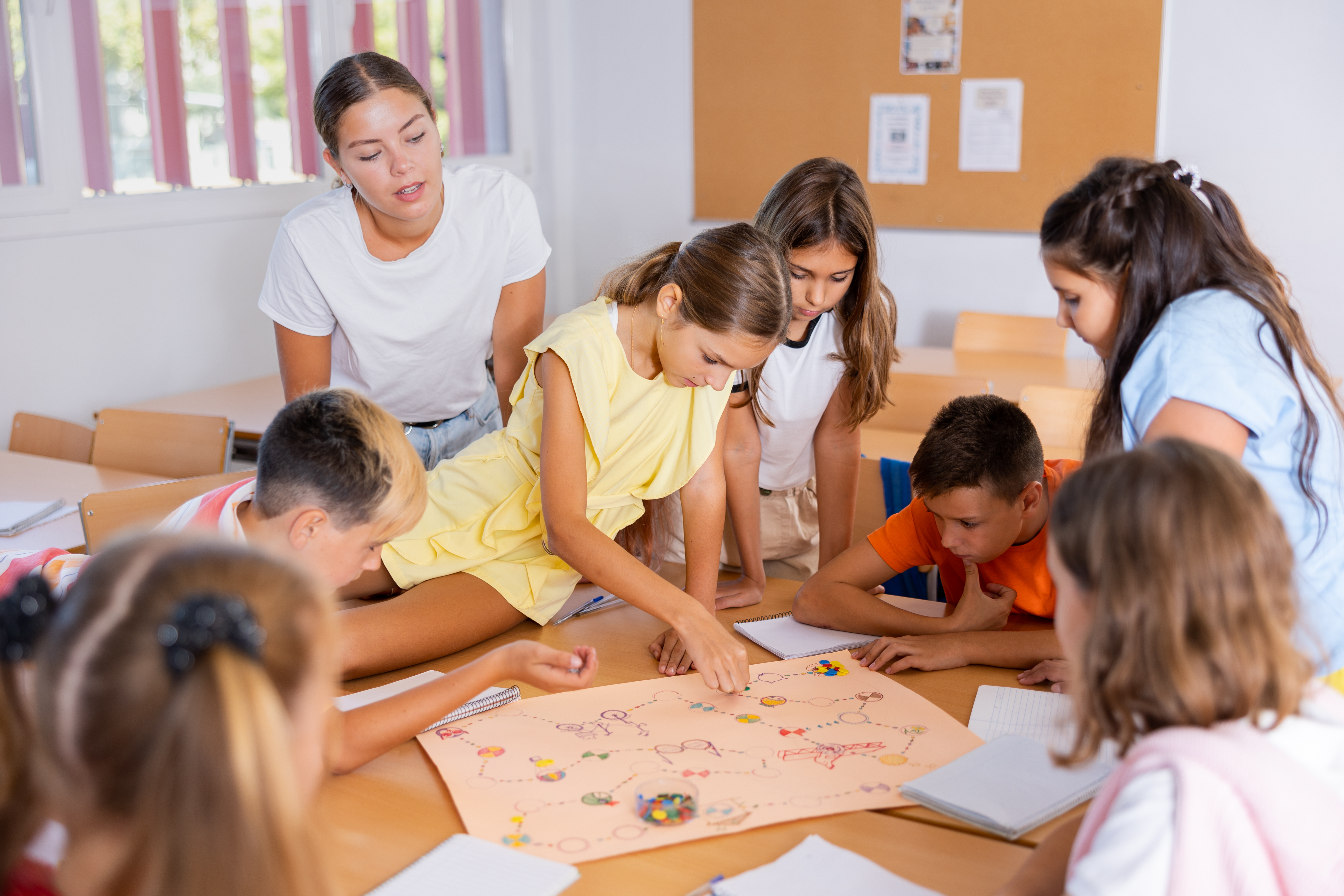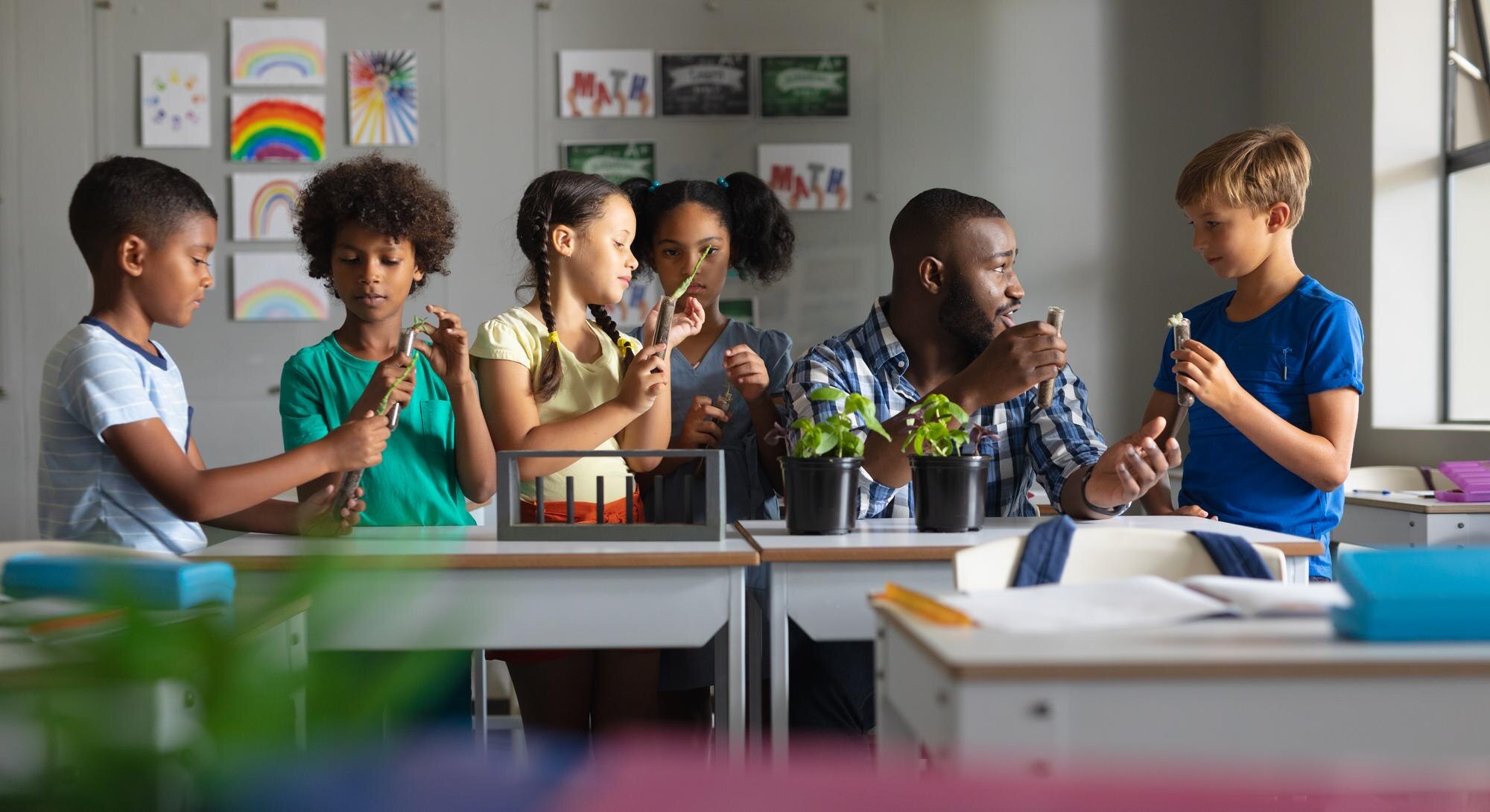
Young teacher talking with teenager students seating in a circle at school
Empowering Gifted Students: Top Strategies for Educators to Foster Resilience and Confidence
Gifted students often face unique emotional hurdles, leaving educators searching for ways to help them thrive beyond academics. You might wonder how to support their resilience and confidence while nurturing their mental well-being. This post is your guide, offering practical educator strategies tailored for these exceptional minds. Discover how you can create an environment where gifted students not only excel but also develop the inner strength and assurance needed for lifelong success. Implement these strategies in your classroom today to help your gifted students flourish emotionally and mentally. Learn more about developing resilience in gifted students.
Building Emotional Resilience

Building emotional resilience is crucial for gifted students, allowing them to manage stress and overcome challenges effectively. Educators play a vital role in fostering this resilience through intentional practices that encourage self-awareness and provide supportive environments. By focusing on self-reflection and creating safe spaces, educators can help gifted students develop the emotional resilience necessary for lifelong success.
Encouraging Self-Reflection
Self-reflection is a powerful tool for building resilience. It involves encouraging students to think about their experiences, emotions, and responses. This process helps them to understand themselves better and manage their feelings. Ask students to journal their thoughts or discuss their experiences in a group setting. These activities promote introspection and awareness.
Consider integrating reflective questions into daily routines. For instance, after a project, ask students: What did I learn? How did I feel about the process? What would I do differently next time? This approach helps students evaluate their actions and emotions critically.
Real-world example: A teacher noticed that her gifted students often felt overwhelmed by perfectionism. By implementing weekly reflection sessions, she observed a significant improvement in their ability to cope with stress.
Students reported feeling more in control of their emotions.
They developed strategies to manage their perfectionist tendencies.
Reflective practices enhanced their overall resilience.
Learn more about building resilience strategies on Gifted Challenges.
Creating a Safe Space
Creating a safe and supportive environment is fundamental for nurturing resilience in gifted students. A safe space enables students to express themselves without fear of judgment, fostering a sense of belonging and acceptance.
Set clear expectations for respect and inclusivity within the classroom. Encourage students to share their thoughts and feelings openly. This approach builds trust and supports emotional growth.
Case study: In a classroom where students felt safe, they were more willing to take risks and engage in learning activities. This openness to vulnerability significantly improved their resilience.
Teachers observed increased participation.
Students became more open to feedback and constructive criticism.
The overall classroom atmosphere became more positive and supportive.
By prioritizing emotional safety, educators can significantly impact the resilience of gifted students. Further insights on creating supportive environments are available at the Genie Academy blog.
Boosting Student Confidence

Confidence is key to the personal and academic growth of gifted students. As educators, focusing on celebrating individual achievements and promoting a growth mindset can significantly enhance their self-esteem and willingness to face new challenges.
Celebrating Individual Achievements
Acknowledging individual achievements helps boost confidence and motivation. Recognize both big and small successes to encourage a positive self-image among gifted students.
Public recognition: Announce achievements in class or school newsletters.
Personalized feedback: Provide specific praise that highlights effort and improvement.
Celebration events: Organize displays or assemblies to honor student accomplishments.
Example: A teacher implemented a monthly celebration to recognize unique student contributions. This initiative led to:
Increased student morale and engagement.
Greater willingness to participate in challenging tasks.
Enhanced peer support and collaboration.
Emphasizing individual success helps gifted students build confidence, leading to a more positive learning experience. Visit ESCCO for additional strategies on supporting gifted education.
Promoting Growth Mindset
A growth mindset encourages students to view challenges as opportunities for growth. This mindset fosters resilience and a love for learning, helping gifted students remain confident even when facing difficulties.
Introduce the concept of growth mindset through stories and discussions. Emphasize that intelligence and abilities can be developed through effort and persistence.
Implementation steps:
Teach about neuroplasticity: Explain how the brain can grow stronger with practice.
Model growth mindset language: Use phrases like “I can’t do this yet” instead of “I can’t do this.”
Encourage persistence: Celebrate effort and learning from mistakes.
Impact: Students adopting a growth mindset showed increased resilience in tackling difficult subjects. They learned to embrace challenges and view failures as learning opportunities.
Explore more about nurturing a growth mindset in gifted students at Psychology Perspective.
Enhancing Mental Well-Being

Mental well-being is fundamental to the overall development of gifted students. Prioritizing emotional support and fostering peer connections are essential steps in ensuring a supportive educational environment that nurtures both the mind and spirit.
Prioritizing Emotional Support
Providing consistent emotional support is vital for the mental well-being of gifted students. Educators can offer this support by being attentive to students’ emotional needs and implementing structured support systems.
Regular check-ins and counseling sessions can help students express their emotions and receive guidance. Establishing a supportive rapport with students encourages openness and trust.
Real-world strategies:
Develop a mentoring program where students can share concerns with trusted adults.
Implement mindfulness practices to help students manage stress and anxiety.
Provide resources for students to explore emotional intelligence further.
By prioritizing emotional support, educators can create an environment that promotes mental well-being and resilience. For more insights, check out the ESCCO website.
Fostering Peer Connections
Peer connections play a crucial role in enhancing the mental well-being of gifted students. Positive relationships with peers can offer emotional support, shared experiences, and a sense of community.
Encourage collaborative projects and group activities to strengthen peer bonds. This approach facilitates social interaction, mutual support, and the development of essential social skills.
Benefits of fostering peer connections:
Improved communication skills: Students learn to express themselves effectively.
Increased empathy: Interacting with peers helps students understand diverse perspectives.
Enhanced resilience: A strong peer network provides emotional support during challenging times.
Promoting peer connections can significantly impact the well-being of gifted students, fostering a supportive community. Learn more about the importance of social connections on Genie Academy.

A certified Heal Your Life® Coach with 20+ years in education and emotional development. Supports gifted teens in navigating anxiety, perfectionism, and identity challenges, while equipping parents with practical tools for lasting transformation. Sessions blend emotional healing, mindset mastery, and strategic empowerment.



